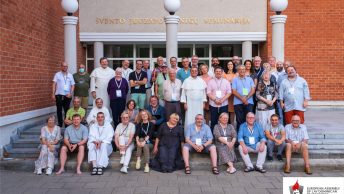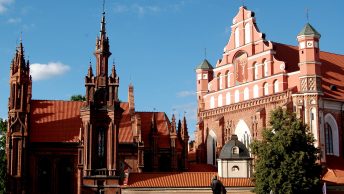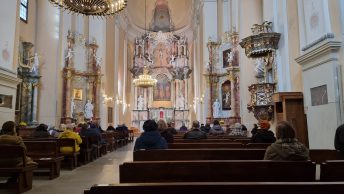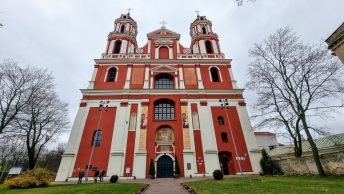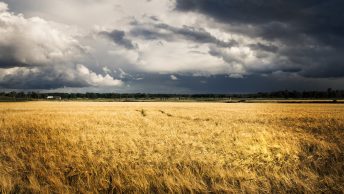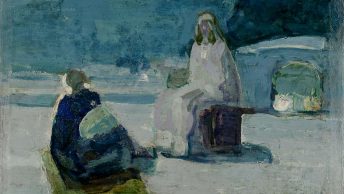Reflection for the Palm Sunday 2021
🇫🇷 Lire la version français ci-dessous
They led him out to crucify him. They enlisted a passer-by, Simon of Cyrene, father of Alexander and Rufus, who was coming in from the country, to carry his cross.
Mark 15, 21
This Lent, the liturgical year invites us to read the Gospel of Mark, who is the most down-to-earth narrator out of the four evangelists, providing us with the greatest number of raw facts, with little interpretation. Mark is also the evangelist who, through the sobriety of his narrative, best allows words to conjure up the scenes within which we move around as discreet spectators.
Among all these images hanging on the connecting thread between the acclamation of the Palm Sunday procession and the celebration of Easter Sunday, from “Hosannah” to “Alleluia”, there is one special image that I would like to contemplate with you today. The image of a man returning from the countryside, a family man called Simon from the African city of Cyrene, requisitioned by the soldiers to carry the cross of Christ. It is therefore under constraint, not out of compassion for an exhausted convict, that the unlucky passer-by “takes on the job”. I can even imagine that on obeying this order, he must have thought: “If only I had chosen another road”.
I like Simon of Cyrene because we have in common the same lazy concern, the same difficulty in letting us be thrown off course. I also like him because he reminds me that our weaknesses and frailties do not make us bad guys, that charity is not a matter of feelings or the expression of a natural disposition but an inner motion, the response of our will to a call: to receive every person as a brother in Christ.
In this short passage, what is fundamentally expressed is the mystery of the encounter with the Lord who passes unexpectedly in our lives. Paul knows something about this, “seized” as he was by Christ on the way to Damascus, thus quoting Isaiah’s surprising declarations from God: “I have let myself be found by those who did not seek me; I have let myself be seen by those who did not consult me” (Rom. 10, 20).
It may not be too far-fetched to believe in Simon’s conversion. His two sons, Alexander and Rufus, explicitly identified by Mark, seem to be well-known to the early Church. It is actually quite possible that this Rufus should be the one greeted at the end of the Letter to the Romans: “Greetings to Rufus, chosen servant of the Lord, and to his mother ˗ a mother to me too” (Rom. 16, 13).
When meditating on this short text, let us ask for the grace to be a little bit more like Simon of Cyrene. Let’s get unsettled by unexpected encounters, let’s work tirelessly on overcoming our egoism and indifference. Through making our prayers more fervent and our behaviour more fraternal, let’s be among those who bring some peace and comfort to Jesus standing alongside those who suffer.
“How many men since then ˗ a host of them over the centuries ˗ would have wanted to be there, in his place, to be passing by at that very moment. Just then. But it was too late, he was the one who had passed by and in eternity, over the centuries, he would never have yielded his place to others”.
(Charles Péguy, The Mystery of the Charity of Joan of Arc)
Ludovic Namurois, O.P.
La grâce des rencontres inattendues
Méditation pour le dimanche des Rameaux 2021
Puis, de là, ils l’emmènent pour le crucifier, et ils réquisitionnent, pour porter sa croix, un passant, Simon de Cyrène, le père d’Alexandre et de Rufus, qui revenait des champs.
Marc 15, 21
Cette année, la liturgie nous donne à lire l’Évangile de Marc qui est le narrateur le plus concret des quatre évangélistes. Celui qui nous livre le plus de faits bruts, sans trop d’interprétation. Celui qui, par la sobriété de son récit, permet le mieux aux mots de convoquer les tableaux au sein desquels nous allons nous déplacer en spectateurs discrets.
Parmi toutes ces images suspendues au fil tendu entre l’acclamation de la procession des Rameaux et la louange du dimanche de Pâques, entre “Hosanna !” et “Alléluia !”, il y en a une que je souhaite contempler plus particulièrement avec vous aujourd’hui. Celle d’un homme revenant des champs, un père de famille nommé Simon, originaire de Cyrène en Afrique, réquisitionné par les soldats pour porter la croix du Christ. C’est donc sous la contrainte et non par compassion pour un condamné épuisé que le malchanceux passant “s’y colle”. J’imagine même qu’au moment d’obtempérer, il a dû penser : “si seulement j’avais choisi un autre chemin.”
Simon de Cyrène m’est sympathique parce que nous partageons la même sollicitude paresseuse et éprouvons la même difficulté à nous laisser “dé-router”. Il m’est sympathique également parce qu’il me rappelle que nos faiblesses et nos fragilités ne font pas de nous des “sales types”, que la “charité” n’est pas une question de sentiments ni l’expression d’une disposition naturelle mais une motion intérieure, la réponse de notre volonté à un appel : recevoir tout homme pour frère dans le Christ.
Dans ce court passage, ce qui s’exprime fondamentalement c’est le mystère de la rencontre avec le Seigneur qui passe à l’improviste dans chacune de nos vies. Paul en sait quelque chose, lui qui “saisi” par le Christ sur la route de Damas, reprendra chez Isaïe les paroles surprenantes de Dieu : “Je me suis laissé trouver par ceux qui ne me cherchaient pas, je me suis manifesté à ceux qui ne me demandaient rien.” Rm 10, 20.
Ce n’est d’ailleurs pas trop malmener le texte que de croire en la conversion de Simon dont les deux fils, Alexandre et Rufus, explicitement identifiés par Marc, semblent bien connus de l’Église primitive. Il est d’ailleurs possible que ce Rufus soit celui salué à la fin de l’épître aux Romains : “Saluez Rufus, choisi par le Seigneur, et sa mère qui est aussi la mienne.” Rm 16, 13
En méditant ce court récit, demandons la grâce d’être un peu plus semblables à Simon de Cyrène. Laissons-nous bousculer par les rencontres inattendues, œuvrons sans relâche à dépasser nos égoïsmes et nos indifférences. Par nos prières plus ferventes et aussi pas nos gestes plus fraternels soyons de ceux qui apportent un peu de paix et de réconfort à Jésus présent dans l’humanité souffrante.
« Combien d’hommes depuis, des infinités d’hommes dans les siècles des siècles auraient voulu être là, à sa place, avoir passé, être passés par là juste à ce moment-là. Juste là. Mais voilà, il était trop tard, c’était lui qui était passé, et dans l’éternité, dans les siècles des siècles il ne donnerait pas sa place à d’autres ».
– Charles Péguy, Le Mystère de la charité de Jeanne d’Arc
Ludovic Namurois, O.P.
Photo credit: iStock / AleksandarGeorgiev


